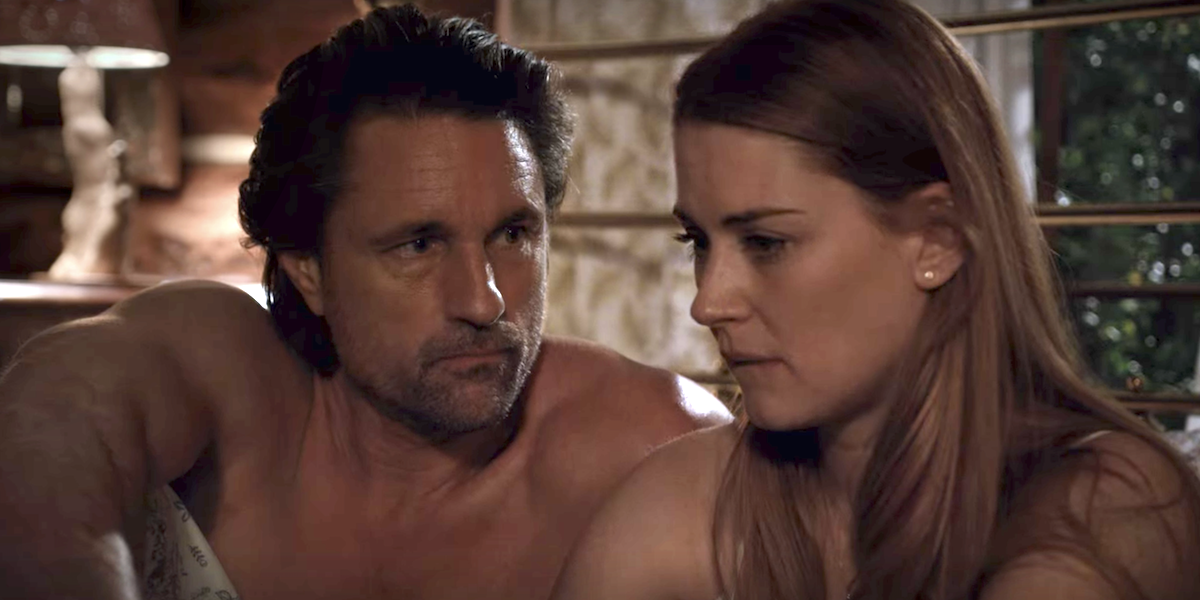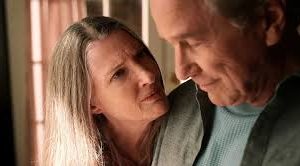Netflix’s Virgin River was once the streaming giant’s cozy answer to small-town drama—a warm hug in television form. Nestled in sweeping mountain landscapes and filled with quirky locals,
the series offered escapism, romance, and community spirit. But now, the very heartbeat of the show—Jack Sheridan and Mel Monroe’s love story—has become its greatest liability.
are now openly voicing their frustration: the couple’s misery is suffocating the series, draining its charm, and overshadowing the vibrant world around them.
So how did the show that promised comfort and heartwarming drama become weighed down by its central couple’s turbulence? And can Virgin River rediscover the magic that first made it a hit?

The Rise of Virgin River: A Cozy Escape That Stole Hearts
When Virgin River premiered, it felt like a balm for weary viewers. The show’s lush scenery and small-town intimacy stood in stark contrast to the breakneck pace of other dramas. Here was a place where life slowed down—where characters bonded over coffee at Jack’s Bar, neighbors rallied to help one another, and romance bloomed against the backdrop of rivers and pine trees.
At the center of it all were Mel and Jack. She, a nurse practitioner carrying the weight of grief after losing her husband; he, a battle-scarred bar owner and Marine veteran trying to find stability in civilian life. Their love story was instantly compelling: two broken souls finding solace in each other. It was messy, real, and filled with the kind of tenderness that made fans believe in second chances.
But what once felt refreshing now feels like a burden.
From Sweet to Stale: Jack and Mel’s Endless Struggles
The early seasons of Virgin River gave fans a reason to root for Jack and Mel. They overcame personal traumas, leaned on one another during crises, and delivered the kind of swoon-worthy moments that made viewers smile through tears.
Yet as the seasons piled on, the storytelling shifted. Instead of growth, their relationship became a revolving door of tragedy and tension. Pregnancy complications, family disputes, gunshot wounds, custody battles—the couple seems cursed by endless misfortune.
Fans no longer see resilience. They see repetition.

Why Fans Are Over the Drama
1. Repetition Is Killing the Romance
Jack and Mel’s issues feel recycled. Each new season resurrects old arguments dressed up as fresh conflict. How many times can fans watch them question each other’s trust or rehash the same insecurities? What once tugged at the heartstrings now feels exhausting.
2. The Show Forgot Its Strengths
Virgin River wasn’t just about romance—it was about community. Doc Mullins’ gruff wisdom, Hope’s fiery leadership, Preacher’s quiet loyalty, and even Lizzie’s youthful impulsiveness all created a colorful tapestry of small-town life. But as Jack and Mel’s drama swallows up screen time, those other storylines struggle to shine.
3. Escapism Has Turned Into Exhaustion
Fans flock to shows like Virgin River for warmth and escape, not to relive endless misery. In a world already filled with stress, audiences crave balance. Instead, Jack and Mel’s perpetual turmoil leaves viewers emotionally drained rather than comforted.
Social Media Speaks: Fans Have Had Enough
Scroll through Twitter threads or Reddit discussions, and a clear sentiment emerges: fans are tired. One viewer lamented, “Every time Jack and Mel fight, I feel like I’ve already seen this episode.” Another tweeted, “Give them one season of happiness—please. Or give the rest of the town more screen time.”
Some fans even argue that supporting characters—like Preacher’s quest for love, Doc’s health battles, or Lizzie’s coming-of-age journey—are more engaging than the main romance. The consensus is resounding: Jack and Mel’s constant misery is dragging the show down.
When Drama Becomes Melodrama
There’s a delicate line between emotional storytelling and soap opera theatrics. Unfortunately, Virgin River has stumbled across it. Jack and Mel’s challenges no longer feel organic—they feel manufactured. Plot twists pile on not to develop the characters but to keep the wheel of conflict spinning.
The danger? Loyal viewers begin to disengage. If audiences stop believing in Jack and





